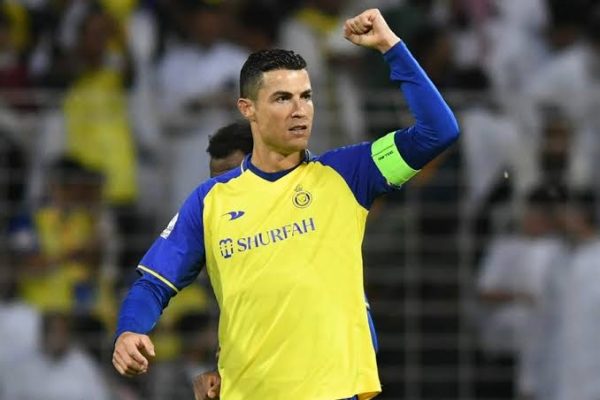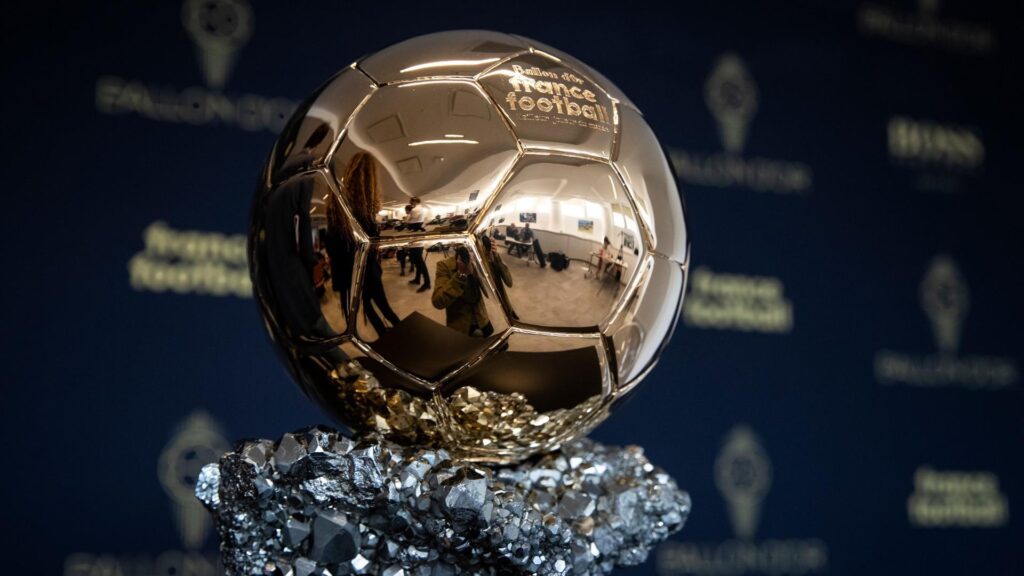Vinícius Júnior, Cristiano Ronaldo, Zidane… football stars with African ancestry

Vinicius Junior. Photo credit: Getty Images
Football is a global sport that thrives on diversity, and players of African ancestry have long played a pivotal role in its development. Legends like Zinedine Zidane and Patrice Evra alongside active players of the sport like Vinícius Júnior and Cristiano Ronaldo showcase the richness of African heritage, shaping their identities and influencing their careers. Each of these stars has roots in Africa, reflecting the continent’s huge contributions to football talent across the globe.
Vinícius Júnior
The very reason for writing this piece is no other than Vinícius Jose Paixao Júnior, commony known as Vinícius Júnior. The Brazilian and Real Madrid winger, recently embraced his African roots through a DNA test revealing his connection to the Tikar tribe in Cameroon. This discovery was part of the Golden Roots campaign, which celebrates Afro-Brazilian heritage and highlights Africa’s lasting influence on Brazilian culture. Vinícius has actively used this revelation to fight racism and promote cultural pride, underscoring how his ancestry has shaped his journey and values. His talent and advocacy make him a prominent symbol of Afro-descendant contributions to football.
Cristiano Ronaldo
Quite a surprise that arguably footballs’ greatest player of all time Cristiano Ronaldo dos Santos Aveiro has some biological connection to Africa. His African ancestry traces back to Cape Verde through his maternal lineage. Cape Verde, a former Portuguese colony, is known for its vibrant culture and history of migration. Ronaldo’s upbringing in Madeira, an island with significant Cape Verdean influence, reflects this heritage. Though he represents Portugal, his roots extend the narrative of Africa’s role in shaping global football. Ronaldo’s connection is an example of how African ancestry contributes to the identity and success of even the most celebrated players. I still wonder, perhaps he plays for Cape Verde, how football in Africa will be like.
Jamal Musiala
Jamal Musiala making it to this list is not only a surprise but also a complicated situation. He is among few players with the opportunity to represent more than two countries in international football competitions. The Bayern Munich sensation, is a dynamic midfielder with Nigerian roots from his father’s side and German roots through his mother. Born in Stuttgart, Germany, and spending childhood years in England, Musiala has a multicultural upbringing. Despite eligibility to play for England or Nigeria, he chose to represent Germany, where he has become pivotal for Die Mannschaft. His playing style reflects creativity and precision, while his Nigerian ancestry adds depth to his identity, exposing Africa’s contribution in shaping global talent.
Curtis Jones
To be honest, I was surprised when I discovered Liverpool midfielder and rising English sensation Curtis Julian Jones is among football players who have a good African root but do not play for the country where its African heritage originates from., known for his composure and technical skill, Jones African ancestry can be traced to Nigeria through his grandmother who is of Nigerian descent. Born and raised in Liverpool, Jones has the multicultural essence of modern English football. Although he represents England, his African heritage forms an integral part of his identity. Jones’ story reflects how the African diaspora continues to shape footballers across generations, enriching the sport with diverse talents and perspectives.
Romelu Lukaku
Romelu Lukaku Bolingoli, one of Belgium’s most prolific strikers, has strong ties to the Democratic Republic of Congo through his parents. Born in Antwerp to Congolese immigrants, Lukaku grew up in a multicultural environment, with his father, Roger Lukaku, a former professional footballer, influencing his career. However, something is more unique with Lukaku than all players discussed in this piece, while Lukaku represents Belgium in international competitions and has become pivotal in the national team successes and progressive developments, he has always acknowledged his Congolese heritage, supporting African causes and celebrating his roots. Unlike others who shy away or talk less of their African ancestry, Lukaku makes boast of it especially to racist football fans. His strength, determination, and work ethic further solidify his African ancestry.
Adama Traoré
Adama Traoré Diarra, born in Barcelona to Malian immigrant parents, has consistently celebrated his African heritage. His upbringing in the diverse La Masia academy of FC Barcelona fostered his unique playing style, characterized by strength, speed, and agility. Although eligible to represent Mali, The Fulham winger chose Spain but remains deeply connected to his roots, often advocating for Africa’s rich culture.
Zinedine Zidane
Zinedine Yazid Zidane, popularly known as Zizou is one of football’s greatest midfielders and tacticians. The former Real Madrid and Juventus player was born in Marseille, France, to Algerian immigrant parents. His family originates from the Kabylie region, home to Algeria’s Berber community. Zidane’s calm demeanor and exceptional vision on the pitch reflect the resilience and cultural pride of his heritage. While he represented France, leading them to World Cup glory in 1998 and European Championship success in 2000, Zidane has always been vocal about his Algerian roots, inspiring generations of North African players.
Clarence Seedorf
Born in Suriname, Clarence Clyde Seedorf moved to the Netherlands as a child and became one of the greatest midfielders in history. Seedorf’s Afro-Surinamese ancestry shaped his character and playing style, marked by a blend of strength, passion, and intelligence. He is regarded by many as one of the greatest midfielders of all time and a record-holder as the only player to win the UEFA Champions League with three different clubs (Ajax, Real Madrid, and AC Milan), Seedorf has used his platform to champion African and Caribbean causes, bridging the gap between continents through his legacy.
Patrick Vieira
Patrick Paul Vieira, a big figure in midfield and captain during Arsenal’s “Invincibles” era, was born in Senegal and moved to France as a child. Despite his success with the French national team, including World Cup and European Championship triumphs, Vieira’s Senegalese heritage remains an essential part of his identity. His leadership on the pitch reflects the discipline and resilience deeply rooted in African culture. Vieira has often expressed admiration for African football and its role in his development as a player.
Patrice Evra
Patrice Latry Evra, a charismatic left-back who enjoyed a decorated career with Manchester United and the French national team, was born in Dakar, Senegal, before moving to France as a child. Evra’s journey from the streets of Les Ulis to global stardom is a story of perseverance and adaptability, qualities deeply tied to his African heritage. He remains a proud ambassador of Senegalese culture, frequently highlighting the values of community and hard work instilled in him by his upbringing.
Africa’s Legacy in Global Football
It is really a beautiful imagination if these players could have chosen to play for the countries of their African ancestry but circumstances owing to the historical activities in the colonial period, the world wars and modern migration have contributed to their non-allegiance to their African countries. The stories of Vinícius, Ronaldo, Lukaku, Zidane and Evra exemplify how African ancestry enriches global football. Whether through technical brilliance, mental fortitude, or cultural pride, these players honor their roots while excelling on the world stage. Their journeys inspire millions, bridging cultures and demonstrating that Africa’s influence extends far beyond its borders, shaping football into the diverse and dynamic sport it is today.
These players illustrate how African ancestry, coupled with global opportunities, nurtures talent that transcends boundaries, enriching football’s global stage.
READ ALSO
Ademola Lookman or Achraf Hakimi? Spotlighting 2024 CAF men’s final shortlist
Boniface, Okoye underperformed, midfield still a problem… analysing Nigeria’s defeat to Rwanda
From mockery to Man U hero: Can André Onana Win EPL Golden Glove?




